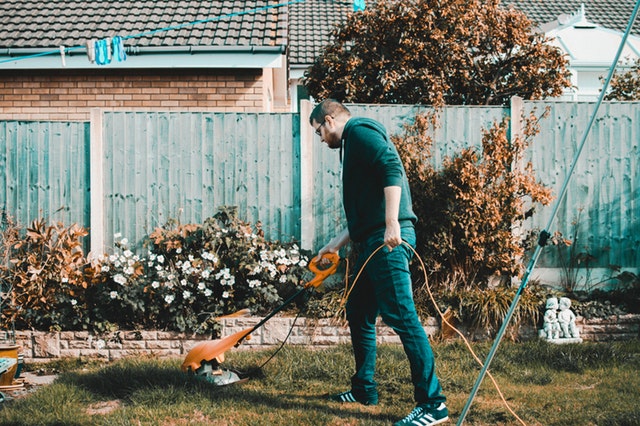
How do you think your kids experience you? Do they expect loving, positive attention and trust or criticism and judgement? Or no attention at all until they cause a problem? Watch yourself and see what they respond to.
Whenever you yell, threaten, punish, or use that blaming tone that turns your child “parent deaf”, you are teaching your children that they are a problem—because you see them as a problem. What you want is the problem to end, but what you are focusing on—what your child is doing wrong—makes the problem worse.
What you want to grow is your child’s capability.
So trust your child’s capability to overcome problems. This requires a mindset shift and understanding what trust really means. Your trust is needed 24/7, especially if your child is behaving in untrustworthy ways.
It’s not about trusting behavior or even your child’s current motivations. It’s about trusting who your child is and that he wants to do things right. The fact that things are going wrong can be corrected by your change in focus.








 Q. I know you don’t believe in consequences, but is there ever a circumstance where a consequence is effective even when knowing the root cause of the behavior? Example: My 10-year-old son expressed this morning that he wished he didn’t have to go to school. He was moody and angry. I did some digging and turns out he hates music and it’s his first class of the day. I get it. I said missing school isn’t an option and asked if he could think of anything to make the day bearable. He was super angry and wasn’t open to hearing me and started to call me vulgar names/swears. I told him that calling me names is unacceptable—something I’ve told him many times. He stormed outside to ride his scooter for a bit, and I was left wondering if he should lose YouTube after school. Will it make him remember or think twice when he is in the red zone swearing at me? Is it just a thing parents do to feel in control when the situation feels so out of
Q. I know you don’t believe in consequences, but is there ever a circumstance where a consequence is effective even when knowing the root cause of the behavior? Example: My 10-year-old son expressed this morning that he wished he didn’t have to go to school. He was moody and angry. I did some digging and turns out he hates music and it’s his first class of the day. I get it. I said missing school isn’t an option and asked if he could think of anything to make the day bearable. He was super angry and wasn’t open to hearing me and started to call me vulgar names/swears. I told him that calling me names is unacceptable—something I’ve told him many times. He stormed outside to ride his scooter for a bit, and I was left wondering if he should lose YouTube after school. Will it make him remember or think twice when he is in the red zone swearing at me? Is it just a thing parents do to feel in control when the situation feels so out of  I hate the word chores, and I can guarantee your kids do too. Asking kids to do chores is like saying I want you to take on this drudgery, this burden. And then when the expectation is that they should do them willingly because of all you do for them—that’s a catastrophe waiting to happen.
I hate the word chores, and I can guarantee your kids do too. Asking kids to do chores is like saying I want you to take on this drudgery, this burden. And then when the expectation is that they should do them willingly because of all you do for them—that’s a catastrophe waiting to happen. Third, set your expectations of yourself appropriately. Expect that from a very young age, your children are going to do tasks to be helpful. Just don’t expect
Third, set your expectations of yourself appropriately. Expect that from a very young age, your children are going to do tasks to be helpful. Just don’t expect 


 Do you think I am doing the right thing by letting her wear pull ups at home? I have tried not letting her, and she lays on the floor and screams. I am trying to make it her idea to use the potty and am trying not to make a big deal about it. She is
Do you think I am doing the right thing by letting her wear pull ups at home? I have tried not letting her, and she lays on the floor and screams. I am trying to make it her idea to use the potty and am trying not to make a big deal about it. She is  Q. My three-year-old has a very big issue with sharing and hogging. She has an 18 mo. old sister who is not allowed to touch anything. I understand that my daughter still is having a hard time with her arrival, she has to share me, she doesn’t get to have me all to herself, she doesn’t even get to read books alone with me and on top of it all I am three times as tired, have to do a lot more chores, can’t play with her at the drop of the hat, and she doesn’t get to have all of my adoration just for her. I still feel really guilty about that. At first I thought, fair enough the toys were hers, so I opted to buy my youngest toys for herself. I told my eldest and explained before we bought anything that I was buying for her sister so she doesn’t have to touch hers. She agreed but once the toy is bought she wants to have it and play with it. She gets so
Q. My three-year-old has a very big issue with sharing and hogging. She has an 18 mo. old sister who is not allowed to touch anything. I understand that my daughter still is having a hard time with her arrival, she has to share me, she doesn’t get to have me all to herself, she doesn’t even get to read books alone with me and on top of it all I am three times as tired, have to do a lot more chores, can’t play with her at the drop of the hat, and she doesn’t get to have all of my adoration just for her. I still feel really guilty about that. At first I thought, fair enough the toys were hers, so I opted to buy my youngest toys for herself. I told my eldest and explained before we bought anything that I was buying for her sister so she doesn’t have to touch hers. She agreed but once the toy is bought she wants to have it and play with it. She gets so  Q. How do you encourage gratitude in your children when they receive gifts? Mine just tear into them and could care less where they came from. I feel the cold stares from my family members when they are not acknowledged, or I have to tell my kids to say thank you. They’re old enough to know better.
Q. How do you encourage gratitude in your children when they receive gifts? Mine just tear into them and could care less where they came from. I feel the cold stares from my family members when they are not acknowledged, or I have to tell my kids to say thank you. They’re old enough to know better.